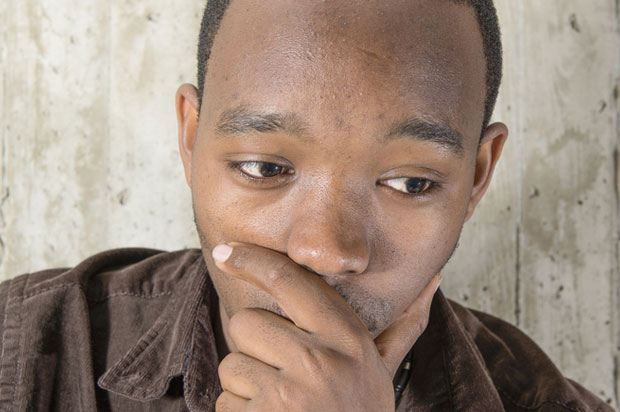Hate crime

Hate crime is illegal and you don't have to face it alone.
If you’re being picked on because of the colour of your skin, your sexual orientation, or the way you live, you could be the victim of hate crime. But what is a hate crime, and how do we stop them?
Hate crime definition
The definition of a hate crime is any form of attack driven by prejudice against a particular group of people. Whether physical or verbal, hate crime is very upsetting for the person being harassed.
What is a hate crime?
A hate crime can be either a written (including cyberbullying), verbal or physical attack. It doesn’t have to be committed against a member of a minority group either, as it’s down to the attacker’s perception of the other person. For example, John writes Paul a nasty email because he thinks Paul is gay. Even if Paul’s not actually gay, John was still attacking him because John thought he was. That’s still a homophobic hate crime, because of the motivation of the attacker.
Why might someone commit a hate crime?
From gender identity to race and religion, there are many reasons a bigoted person might attack someone else, including:
- Racism – When a person commits a crime against someone because of the colour of their skin, their ethnic background, their accent or use of a foreign language.
- Homophobia – When someone is victimised because of their sexuality, because they are, or the attacker thinks they are gay, lesbian or bisexual.
- Transphobia – When someone is targeted with violence or abuse because they are or are perceived to be transgender or non-binary.
- Other kinds of hate crime – Violence or harassment against people because of their religion, refugee or asylum seeker status or disability is also a hate crime. Domestic violence can also be considered by the police to be a hate crime, but is treated separately.
Protected characteristics
When it comes to tackling hate crime, it’s worth noting that this is a form of discrimination. What counts as discrimination depends on ‘protected characteristics.’
The idea of protected characteristics means you have a right not to be treated less favourably, or subjected to an unfair disadvantage, because of your background or preferences. According to the gov.uk website, it is a criminal offence to discriminate against someone based on:
- Age.
- Gender reassignment.
- If you’re married or in a civil partnership.
- If you’re pregnant or on maternity leave.
- Disability.
- Race including colour, nationality, ethnicity or national origin.
- Religion or belief.
- Sex.
- Sexual orientation.
We’ve got an article on discrimination at work and discrimination by landlords if you’d like to learn more about this.
I’m a victim of hate crime, what should I do?
Don’t retaliate: You could risk violence or make the situation worse.
Tell someone about it: Hate crime is inexcusable and should be dealt with as soon as possible. If you’re at school or college, tell a teacher or staff member what has happened and they’ll help you sort it out and help you decide whether you want to inform the police.
Report it: It’s your right to go to your local police force, report a hate crime and have it investigated. If you’re scared to report hate to the police there are other ways you can report crimes anonymously. Visit Stop Hate UK, which will direct you to someone you can talk to.
Need to talk to someone about something you’ve seen or experienced? Don’t forget the team at The Mix is always here to listen to and support you. Contact our team today.
Finally, if you have witnessed or experienced a hate incident including racist or xenophobic harassment, please submit your experience to iStreetWatch, which tracks racist and xenophobic harassment in public spaces.
Next Steps
- If you have witnessed or experienced racist or xenophobic harassment, please submit your experience to iStreetWatch who track racist and xenophobic harassment in public spaces.
- Chat about this subject on our Discussion Boards.
By The Mix Staff
Updated on 31-Mar-2023
No featured article










